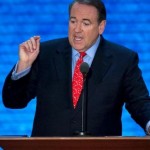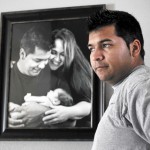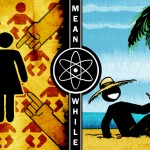Every Monday in Citizenship Confusion, Alan Noble discusses how we confuse our heavenly citizenship with citizenship to the state, culture, and the world.
Last week, The New Yorker published an article by Ryan Lizza which revealed the “exotic influences on [Michele Bachmann’s] thinking.” One of those influences was Frances Schaeffer and another was Nancy Pearcey, a student of Schaeffer’s. While I am no fan of Bachmann politically, it is fairly obvious that this New Yorker article is a “hack job.”
Joe Carter, over at First Things, calls attention to the number of the articles journalistic flaws. Barry Hankins, a top Schaeffer scholar, focused on Lizza’s profound misrepresentation of Schaeffer in the article. But perhaps the most interesting response comes from one of Bachmann’s “exotic influences,” Nancy Pearcey:
“Lizza writes as though anyone who applies Christianity to all of life is a dangerous extremist.” There are only a few passages in the New Yorker article which might imply this view of Christianity, but in an NPR interview, Lizza seems to clarify the danger of Christianity as taught by Schaeffer and Pearcey (among others) by pointing out its “key thing”: “[Nancy Pearcey’s book] is in line with the Schaeffer-ite view of taking your Christian faith and making sure that it permeates all parts of your life. The key thing here is Christians should not just be go-to-church-on-Sunday Christians. Their religion should permeate all aspects of life.”
There is an important point here that Christians must take note of: secularism can only tolerate Christianity if it is a private faith, a consumer preference similar to supporting a local sports team. Because religion is irrational, so the argument goes, it cannot be allowed in public discourse. When it comes to politics, citizens must be rational and secular. How can we have a liberal democracy if citizens are voting based on what “God” tells them privately? Christianity is fine as long as it remains in church (the space of irrationality), but once it comes into the marketplace or the courts or the White House, it is dangerous.
Pearcey is right to challenge this logic, and Christians should follow her in identifying and opposing this secular ideology of private faith. Indeed, a significant part of my column has been devoted to exposing this ideology which logically leads to viewing the State as the final and absolute authority. We have a higher authority, and our Faith cannot help but be worked out in all areas of our lives, including the voting booth.
While this is an important point for Christians, I would like to encourage us to take a step further by realizing how important it is for us to defend the rights of people of other faiths to exercise their religion freely in all areas of their lives, including politics. If we challenge the rights of Mormons to hold office, or Muslims to wear religious clothing in public, apply for conscientious objector status, or to build mosques, then it is likely that we are also challenging our own rights (and obligations, I would add) to extend the Lordship of Christ over every aspect of our lives.











